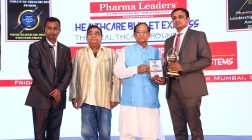Rs.55,986 crore FDI in 13 year in Indian Pharma Sector
Multinational drug makers may complain that India is an inhospitable market to do business in, but that hasn’t stopped a flood of foreign direct investment (FDI) into the country’s pharma industry since the start of the century.
The pharma sector attracted Rs.55,986 crore in FDI in the 13 years through December 2013—half of it in the past three years, according to data compiled by the department of industrial policy and promotion (DIPP). This made the sector the fifth biggest recipient of FDI since 2000, behind financial services, construction, telecom and information technology.
UK drug maker GlaxoSmithKline Plc’s (GSK) investment between February and March 2014 to raise its stake in its Indian unit from 50.7% to 75% will add another Rs.6,400 crore to FDI in the sector.
Foreign drug makers have alleged that India’s trade, investment and intellectual property policies are a deterrent to their business interests, prompting a probe by the US International Trade Commission (USITC) into India’s trade and investment practices.
The DIPP data is being used by the Indian Pharmaceutical Alliance (IPA), a lobby group for Indian drug firms, to counter such claims. “Our submission before USITC was that the facts do not support this perception in general and in the pharmaceutical sector in particular,” said Dilip G. Shah, secretary general of IPA.
Citing large FDI deals that were struck after India introduced a new intellectual property law in 2005, Shah testified before USITC in the first week of March that “the obvious corollary is that these investments have been made because global pharmaceutical companies and others believe that the business environment in India is positive overall”.
Of particular concern to foreign drug makers has been India’s intellectual property rights regime that Linda Dempsey, vice-president of the US National Association of Manufacturers, has described as weak and unstable.
“As a result our manufacturing and other business activities, including fresh investments, have been negatively impacted in India,” she said.
Such concerns have been fuelled by developments such as a March 2012 decision by the Indian patent office to grant Hyderabad-based Natco Pharma Ltd a compulsory licence to manufacture and sell a generic version of Bayer AG’s patented cancer treatment Nexavar. Last year, Swiss drug maker Novartis AG’s seven-year battle to win an Indian patent for its anti-cancer drug Glivec ended with the Supreme Court dismissing the company’s appeal.
IPA contends that global drug makers have continued to invest in India despite the concerns raised by them.
Important investments by foreign drug makers in India in recent times, apart from GSK’s share buy-back, include US-based Mylan Inc.’s $1.75 billion acquisition of Strides Arcolab Ltd’s formulation export business (2013) and French drug maker Sanofi SA’s nearly $100 million purchase of Universal Medicare Ltd (2011).
Mylan spent Rs.160 crore to acquire Unichem Laboratories Ltd’s formulation plant in Madhya Pradesh in 2013.
Abbott Laboratories of the US purchased Piramal Healthcare Ltd’s core formulations business for $3.8 billion in 2010. Sanofi invested $722 million for acquiring and upgrading Hyderabad-based Shantha Biotechnics Ltd(2009-2012). Japanese drug maker Daiichi Sankyo Co. Ltd spent some $4.6 billion to buy a controlling stake in Ranbaxy Laboratories Ltd (2008).
Mylan, according to the IPA testimony to USITC, has invested $3 billion in India in the last six years and operates some 14 facilities with about 12,000 people in the country.
Mylan president Rajiv Malik said in an earlier interview that his firm not only viewed India as a global manufacturing hub, but was also aggressively pursuing growth in the local market.
US drug makers Merck and Co. Inc. and Bristol-Myers Squibb Co. who had exited India earlier re-entered the market in 2005 with fresh investments. They have also made joint ventures and forged strategic alliances with local firms.
Section 3(d) of India’s patent law that denies patent protection for modified forms of already known drugs, unless they are proved to result in higher therapeutic benefits, has irked many foreign drug makers. Some restrictions on FDI in existing Indian pharmaceutical units and uncertainties in securing regulatory approvals for clinical trials have also been concerns.
“India, with its large population and high consumer potential is an attractive market,” said an industry adviser with a foreign consulting firm, who didn’t want to be identified. “But since it is a developing market and a large percentage of the population is still poor, the government would naturally be cautious while introducing policies which have an impact on the local economy.”
 “Some of the provisions in the country’s patent law, and regulatory issues raised in the past on FDI in pharma and the indecision on clinical trial approvals, etc., have created concerns among the foreign business community and US companies in particular. I am not sure this has had any severe impact on the FDI flow to this country so far,” he added.
“Some of the provisions in the country’s patent law, and regulatory issues raised in the past on FDI in pharma and the indecision on clinical trial approvals, etc., have created concerns among the foreign business community and US companies in particular. I am not sure this has had any severe impact on the FDI flow to this country so far,” he added.









